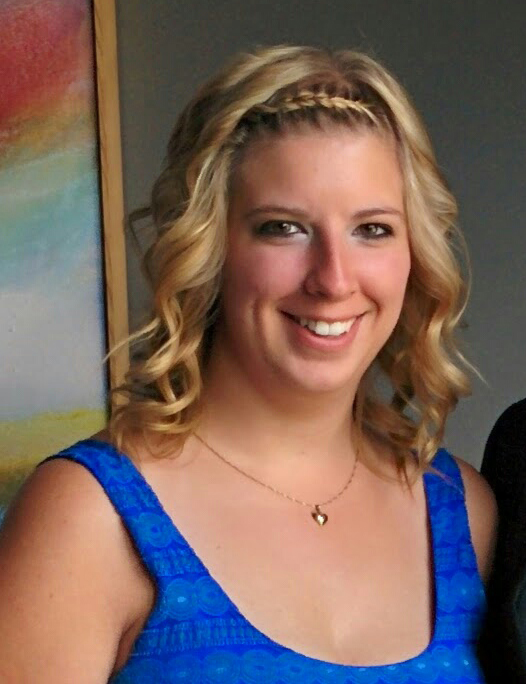
The Wood Forum on Juvenile Arthritis is on March 7 from 10 a.m. to noon at the Telus World of Science. Register at uab.ca/WoodForum.
(Edmonton) Juvenile arthritis is a disease of a thousand faces. Symptoms can vary from person to person or even day to day-the bad stretches of inflammation and joint stiffness sometimes spanning weeks or even years.
For Kristine Erickson, kindergarten was her low point coping with juvenile idiopathic arthritis, or JIA. Every morning, she would wake up with knee joints so stiff her brother Michael-one of her biggest supporters-had to carry her the 400 feet from their Edmonton-area home to the bus stop, placing her in her seat. Upon arrival at school, her driver would carry her from the bus and into the arms of her teacher.
And that was just the start of the day.
"My teachers would carry me around the school until my knees loosened up enough that I could walk." - Kristine Erickson, diagnosed with juvenile arthritis at 14 months old.
"My teachers would carry me around the school until my knees loosened up enough that I could walk," Erickson remembers.
Now 23 and a student at the University of Alberta with an eye on a career in occupational therapy, Erickson continues to live with JIA but fortunately her symptoms are nothing close to what she experienced back then, when the disease robbed her of her mobility and limited interactions with other kids.
"In kindergarten, my best friend was my teacher," she says.
Erickson's battle with arthritis might be uniquely hers, but her story is familiar to many other children, youth and families affected by JIA-families who have the same worries or questions about the disease's future trajectory and impact on health.
Erickson plans to share her story this Saturday, March 7 as a featured speaker at the Wood Forum on Juvenile Arthritis.
Wood Forum on Juvenile Arthritis
Hosted by the Faculty of Rehabilitation Medicine with support from the Wood Research Fund, the Wood Forum is a free public event aimed at raising awareness about JIA and bone and joint health in general. It's an opportunity for families, health professionals, students and the general public to learn more about the disease from some of the best experts at the U of A and Edmonton.
"Juvenile idiopathic arthritis is as common as diabetes or cancer in children but it is often under-recognized and under-diagnosed," says Janet Ellsworth, head of pediatric rheumatology in the Department of Pediatrics and another featured speaker at the Wood Forum. "We sometimes see patients who have clearly had arthritis for months to years before someone makes the connection as to the cause of their problems."
Fortunately, that wasn't the case for Erickson, who has lived essentially her entire life with JIA, ever since her diagnosis at just 14 months old. She had just learned to walk and was flourishing when suddenly she reverted back to crawling. Concerned, her family physician put one of Erickson's favourite toys on a bench, slightly out of reach unless she stood on her two feet.
She couldn't do it.
"I am the youngest that I've heard of, but I know I am not the only person who was diagnosed that young," Erickson says.
JIA is a part of who Erickson is, but she hasn't let the disease hold her back. She tried almost every non-competitive sport as a child, even if her body couldn't always keep up.
Swimming was a favourite, but she almost always failed tests on her first try-but still pushed on. In fact, one time she purposely avoided telling her swimming instructor about her arthritis-and also made her mom promise not to tell-hoping she could pass without special treatment. She didn't, but she still scored a victory.
"Arthritis isn't going away because you want it to. Things happen to your body that are completely out of your control." -Kristine Erickson.
"I appreciated that my parents gave me that option, to try on my own," she says.
Growing up with JIA takes a physical toll, from painful medication injections that sometimes took Erickson 10 minutes to work up the nerve to self-administer, to oral medication that cause severe nausea.
"It is the bane of every child's existence when they have JIA."
There was also the emotional toll on Erickson's parents, especially in the early days wondering how the disease might progress. Those are issues most kids don't even think about, Erickson says.
"I didn't realize how much fear was involved. I didn't know a life without arthritis."
Today, her symptoms no longer include morning stiffness and are mostly confined to her knees and elbows. She feels it most when brushing her hair, walking across campus or sitting too long.
Speaking at the Wood Forum will allow her to share her experiences, including one lesson she never forgets: despite the best-laid plans, arthritis sometimes has other ideas. Sometimes that means cancelling plans for a pickup game of soccer due to a sudden flare up, or planning an entire trip abroad around medication schedules and symptoms.
"Arthritis isn't going away because you want it to," Erickson says. "Things happen to your body that are completely out of your control."
Register for the Wood Forum on Juvenile Arthritis
Register or learn more about the Wood Forum on Juvenile Arthritis at uab.ca/WoodForum.
